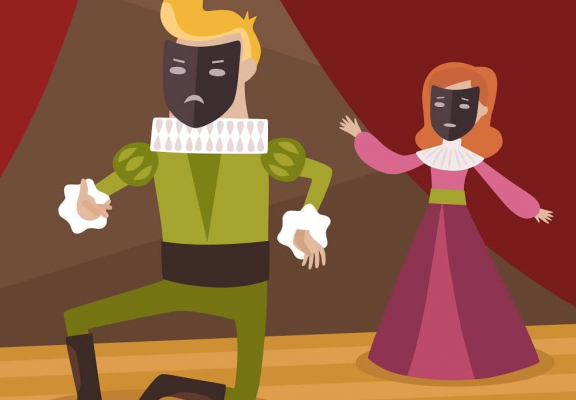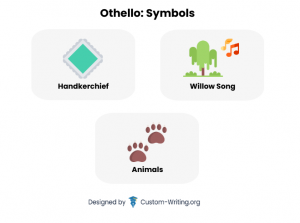

‘Divinity of hell!’ appears to be an exclamation of frustration (compare Iago’s ‘O god of hell!’ earlier in the play), but cleverly, like that earlier outburst, fuses God and the Devil, which is fitting given Iago’s plan to appear benevolent and kind even as he plots Cassio’s further downfall. Racism is a prominent theme in Othello that is aided by light and dark images. In Othello Desdemona has over- tones of heavenly light and goodness, as lago has undertones of hellish darkness and evil.

How, then, Iago asks himself – and us, his uneasy confidants in this scene – is he a villain, when he is giving good advice to Cassio? The ‘parallel course’ acknowledges that, of course, Iago intends to bring about Cassio’s destruction through advising him thus but it’s true that even if he did have Cassio’s best interests at heart, he would advise him to do exactly the same. Either is tenable, though perhaps it makes more sense her to choose the more syntactically likely reading and gloss Iago’s lines here as ‘even as her desire to do something will lord it over Othello’s natural instincts, which are weakened because he is enslaved by love’. Honigmann glosses this as potentially meaning Desdemona’s inclination or fancy alternatively, however, critics have interpreted ‘her appetite’ as meaning, in condensed form, Othello’s appetite or desire for her. Symbols: The handkerchief ( Red handkerchief symbolizes love) Candle (Candle symbolizes Othello extinguishing Desdemona’s life. I can believe what I hear.(Duhan) I feel close to Desdemona,she has been punished.Despite she is innocent.(Merve) 26. In the excellent Arden edition of the play, Othello: Revised Edition (The Arden Shakespeare Third Series), E. I feel close to Othello because I have some trouble about confidence. It’s not clear what Iago means by ‘her appetite’ here. The word ‘honest’, then, is often deployed ironically in Othello, and we should be on our guard when the king of rogues, Iago, uses it repeatedly here.

As William Empson showed in his analysis of the word ‘honest’ in Othello (in his The Structure of Complex Words (Hogarth critics)), the word ‘honest’ was undergoing a curious journey when Shakespeare wrote the play in the early seventeenth century, as it came to be associated with selfish libertinism and independence, and even rogue behaviour. Note how the word ‘honest’ has already appeared twice in Iago’s soliloquy. ( Probal means the same as probable here.) What’s more, it’s easy to win Desdemona round to such an honest request. Iago muses, on his own: who would call him, Iago, a villain for advising Cassio to do what he has suggested (ask Desdemona to put in a good word for him with Othello)? After all, it’s the best way for Cassio to win back his favour with Othello. At the point in the play where Iago makes his ‘And what’s he then that says I play the villain?’ speech, Cassio has just left.


 0 kommentar(er)
0 kommentar(er)
